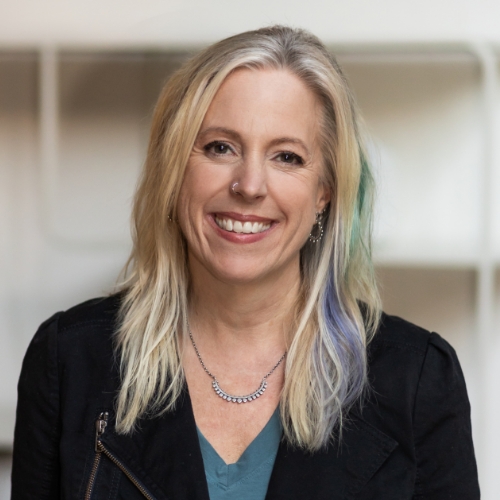In early 2023, the founder of the psychedelic medicine company Lykos Therapeutics met with a potential investor for dinner, feeling out the chemistry for a financial — and personal — relationship that could set the company’s future.
The investor, Protik Basu, was close to leading a huge investment into Lykos, which was on the cusp of bringing to patients a new type of treatment for post-traumatic stress disorder. Rick Doblin, Lykos’ founder, had once hoped to avoid selling any equity in the company at all.
 Protik Basu
Protik BasuOver the two-and-a-half-hour dinner, the two men bonded over liberation theology, a Christian social justice movement that sought to empower the poor and improve socio-economic disparities. Lykos’ drug midomafetamine, better known as the psychedelic MDMA, was speeding toward the FDA. The company believed it could help the roughly 13 million Americans suffering from PTSD, including everyone from veterans to survivors of sexual violence. As the two men moved toward a deal, the investment felt like an ideal partnership.
But in the early days of their relationship, Basu also gave Doblin a warning. If they worked together, he said, outsiders might try and paint them as two protagonists pitted against each other. Basu’s investment would give his venture capital firm, Helena, power and authority that Doblin and Lykos, whose early operations had been funded in part by donors, hadn’t before had to share.
A few months later, Basu’s firm led a more than $100 million investment into Lykos that would fund the company’s rapid growth, and its plans to launch the drug after a review by the FDA.
It never got that far.
Lykos would face a brutal review by US regulators earlier this year that led to the drug’s rejection. The company was forced into a punishing round of layoffs, letting go of 75% of its staff, and ousting its top executives and CEO. And Doblin would be forced off the board in the culmination of long-simmering tension over Lykos’ mission, his own ambitions, and the company’s growing pains as it tried to bring a breakthrough, but controversial, therapy through the strict US regulatory system.
Endpoints News spoke with more than 10 sources involved with Lykos over the last 18 months, who spoke about its culture, operations and described key events. Most spoke on condition of anonymity. The company declined to comment on the totality of this story, electing to answer select questions.
Doblin is one of the few who agreed to speak on the record. A month after his exit, Basu’s warning over dinner seems prescient. The founder says that in retrospect, his path had been diverging from the company’s for some time.
“There were just a bunch of decisions at the Lykos board level that I didn’t really agree with,” Doblin said in an interview with Endpoints.
‘We would have to go to investors’
Lykos’ origins date back to 1986, when Doblin founded a group called the Multidisciplinary Association for Psychedelic Studies, better known as MAPS. The non-profit’s goal was to rebuild the perception of MDMA as a potential medicine, one year after the Drug Enforcement Agency named it a Schedule I substance, the agency’s strictest designation about a chemical’s potential for abuse.
In 2014, MAPS spun out Lykos (called MAPS PBC at the time), envisioning it as a corporate offshoot that could turn MDMA into a therapeutic drug and get it approved by regulators. Wholly owned by MAPS, it was also a “key part of MAPS’ strategy to become a sustainable non-profit organization,” according to a 2018 snapshot of MAPS PBC’s website.
In the early years, that vision was funded by philanthropy. But as other psychedelic companies sprouted up, it became harder to bring in money from people who realized that instead of being donors to a charity, they could be shareholders in a business, Doblin said.
“I did not realize that we would not be able to raise the money we needed from philanthropy,” Doblin said of his early vision.
It began to flirt with more traditional forms of financing, and heading into 2023, the company had added to its funding by selling a convertible note — a loan that can be turned into equity — and by selling rights to future royalties. But it had never sold a stake in the company outright, and Doblin said he came to the conclusion that “we would have to go to investors.”
“We did whatever we could, for as long as we could, to forestall selling ownership,” he said.
Many of Lykos’ early employees had come from MAPS, mainly to continue the clinical development work through Phase 3. But as the pivotal trial proceeded and the company grappled with potentially needing to sell a drug, it began to hire workers with expertise in market access, commercialization and state government affairs, many of them from larger drugmakers that had very different cultures. There were about 154 employees at the beginning of 2023, according to the company.
The old guard and the new often didn’t see eye to eye on how to progress the company.
Multiple sources told Endpoints that members of Lykos and MAPS would have calls together, despite the two organizations having very different goals. For example, MAPS’ focus on the decriminalization of drugs sometimes ran directly counter to Lykos’ work, especially when planning for the potential launch of MDMA-assisted therapy in states like Oregon or Colorado, where decriminalization was already taking effect.
Some employees at Lykos also questioned the heavy emphasis on therapy, which Doblin maintains is core to the therapeutic benefit of the drug. He told Endpoints that giving patients MDMA without therapy is “very, very risky” and has advocated for training therapists by giving them the drug. He says that some people at Lykos threatened to quit if the company moved forward with that plan.
“I think that the people that hold me in low regard are nervous also about one of the core missions of MAPS, which is both drug development and drug legalization,” Doblin said.
New raise included old money
At the start of 2024, Lykos announced the closure of its Series A, a milestone that appeared to reinforce its momentum.
But much of the new money the company announced was already accounted for by its now much larger workforce, according to people familiar with the company’s budgets. It had already made a number of small cost cuts and hiring freezes, and a portion of the more than $100 million the company touted had actually been raised through the convertible loan — and at least partially spent.
The deal also officially gave Basu more power. While MAPS had shares with extra voting power, Helena and Basu had the final say on budgetary decisions, according to a source familiar with Lykos’ corporate structure. MAPS PBC was officially renamed Lykos, and in February the FDA accepted its application for midomafetamine, teeing up an August decision.
The company also announced two key hires: Allison Rosenthal, a longtime veteran of Otsuka, as chief commercial officer. Coy Stout also joined the team as VP of market access.
After years of living outside the establishment, the company was knocking at the door of legitimization by the drug world’s regulatory gold standard, and a potentially lucrative product launch.
Then the roof fell in.
From skepticism to rejection
In June, outside experts appointed by the FDA gathered in Silver Spring, Maryland to discuss the company’s drug. Despite two successful Phase 3 studies, members of the FDA’s advisory committee heavily criticized the company for failing to collect data that could’ve better informed the drug’s potential for abuse. There were concerns that patients knew they were on the drug, and not a placebo, casting the results into doubt. And they asked about bias in the types of patients who had been picked for the trial.
In the end, the vote against recommending the drug was 10-1. An outside pricing group assessing the program cast additional doubt on the integrity of the development program, lambasting Lykos for a prior case of alleged sexual misconduct in a Phase 2 study.
By the time the FDA rejected the drug in early August, few were surprised. And Basu’s warning to Doblin was about to become very real.
Corporate overhaul
On Aug. 15, six days after the FDA rejection, Lykos announced it was letting go of 75% of its roughly 100 employees. According to sources, the departures included General Counsel Arman Nadershahi and Rosenthal, the chief commercial officer hired just a few months prior.
 Amy Emerson
Amy EmersonEndoints asked CEO Amy Emerson in an interview after she detailed the staff cuts why she was staying on, given what in retrospect looked like significant missteps during the drug trials.
“I stand behind the decisions that I have to make that allow us to keep going and get us pointed in the right direction,” she said. “And those are hard decisions to make.”
Doblin, however, was out. The founder, who had for years appeared on stages touting the potential of psychedelics, was now far too problematic a frontman. Basu told him that the story of Lykos could no longer be about him or his crusade, according to a person familiar with the conversation.
In an interview after his exit, Doblin described Basu’s firm Helena as an “impact investor” that’s “not willing to sacrifice profits for impact.” He said it was a “mistake” that he did not anticipate that Helena would be willing to make certain trade-offs for potential financial returns. Basu declined to comment on Doblin’s allegation.
For a few weeks, Emerson hung on. “I am not really thinking about myself right now,” she said. “I’m thinking about the organization.” There had been no fight over her job, she said on the day of the cuts.
There hadn’t been, in large part because the decision to replace her had been made at the time of the restructuring, according to a source familiar with the move. Ultimately, Emerson made the call, another source said, and handed in her resignation.
Her exit was revealed on Sept. 5, and Chief Operating Officer Michael Mullette, who was most recently at Moderna after more than 19 years at Sanofi, was named the interim CEO, with David Hough, the architect of J&J’s esketamine spray Spravato, becoming chief medical officer. Together, the two had a combined 39 years of experience at large drugmakers, completing the company’s transformation away from the psychedelics movement that founded and led it.
In a statement to Endpoints, Emerson said she remains “very proud of the team.”
“There is no doubt that mistakes were made, as will happen in any pioneering journey, but the progress is undeniable and I am as confident as ever that in the end, this effort will be successful and that we will be able to provide help to millions of people who desperately need it,” she said.
A source familiar with the planning said Lykos’ first engagement with the FDA is in October, where the agency can expand on the rejection and Lykos can ask for more clarity on what data are needed to potentially try again.
Another source says it’s unlikely Lykos will formally dispute the FDA’s decision and would rather focus on raising more money for an additional study. For now, the company said in a statement that it has enough cash to “support its NDA resubmission process.”
And Doblin is confident that Lykos will ultimately succeed. “The mission continues,” he said.